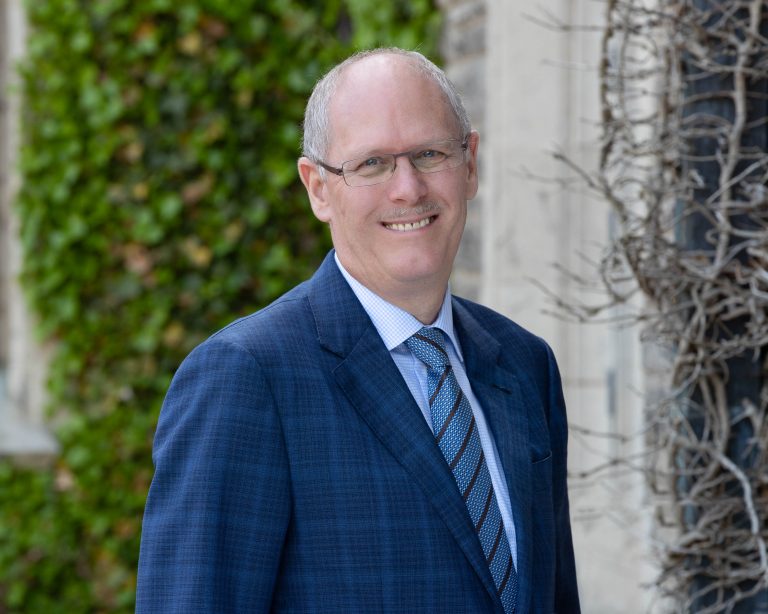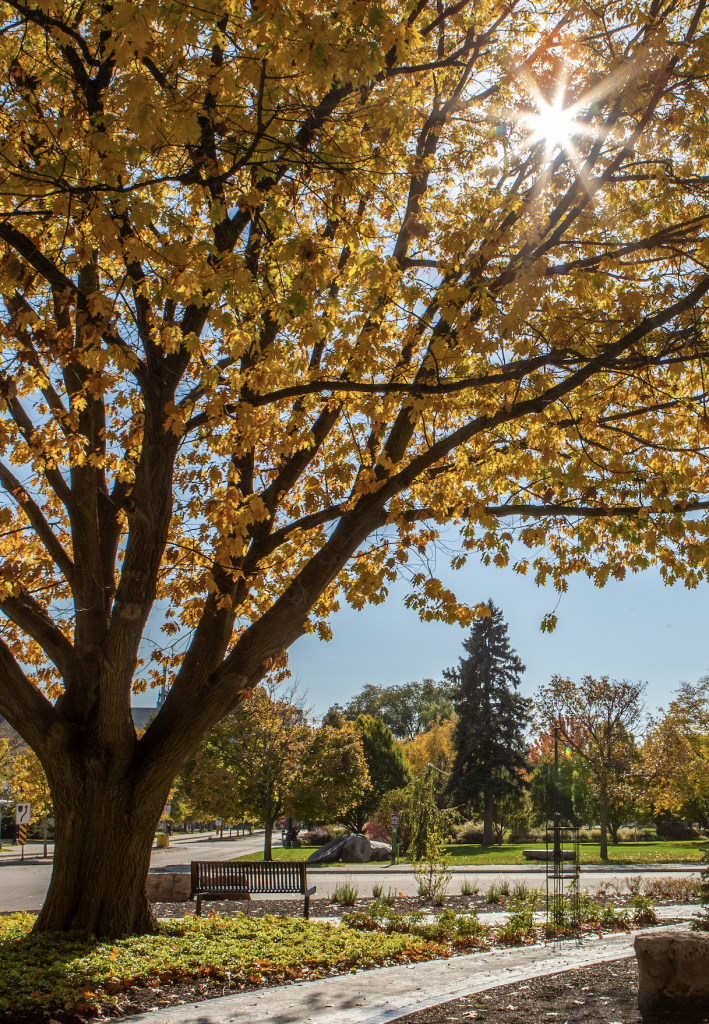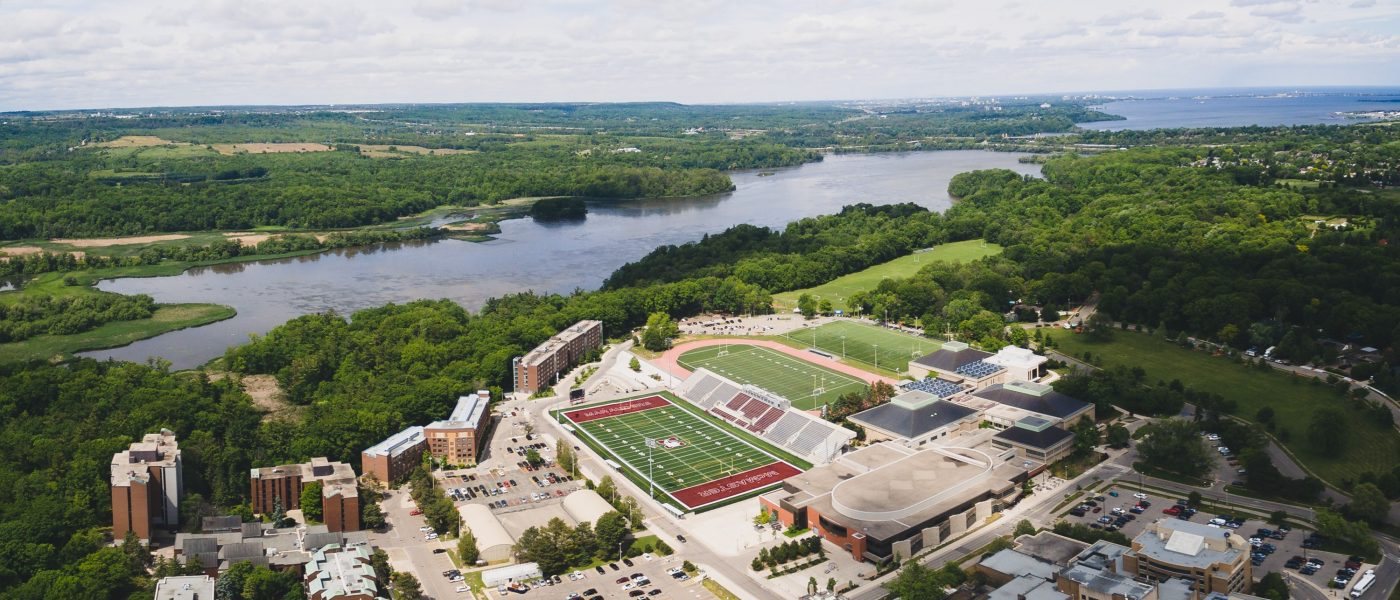Land Acknowledgement:
McMaster University recognizes and acknowledges that it is located on the traditional territories of the Mississauga and Haudenosaunee nations, and within the lands protected by the Dish With One Spoon wampum agreement.

President and Vice-Chancellor
Welcome to the third annual Sustainability Report, created in alignment with McMaster’s university-wide Sustainability Strategy: A Living Laboratory for Sustainability 2022-26.
This report shares our progress over the last year within the four strategic drivers of our strategy: 1. A Culture Focused on Sustainability 2. Teaching, Learning and Research 3. Self-Sustaining Campus and Sites, and 4. Operational Excellence.
Transforming McMaster’s campus into a living laboratory for sustainability is a university priority and is in keeping with the essential role we all play in supporting the university’s vision to advance human and societal health and well-being.
Within each of the strategic drivers, I hope that the selected stories will inspire you to consider how you can affect sustainable change in the McMaster community and be part of the significant progress we are seeing on campus.
Just as we need multiple strategies to achieve a carbon-free campus, we need the support of the entire McMaster community to meet our ambitious goals.

David Farrar
President and Vice-Chancellor
Watch as President David Farrar talks with Director of Sustainability Dave Cano about what McMaster is doing to create a more sustainable campus and world.
Sustainability Strategy

Culture Focus on Sustainability Learn More
Strategic Driver 1

Teaching, Learning and Research Learn More
Strategic Driver 2

Self-Sustaining Campus and Sites Learn More
Strategic Driver 3

Operational Excellence Learn More
Strategic Driver 4
Guiding Principles
Interwoven throughout the strategy’s four drivers continues to be the principles guiding our campus’
transformation into a living laboratory of sustainability.
We look through a lens of Indigeneity in our sustainability efforts
We focus on equity, diversity, accessibility, and inclusion in our sustainability efforts
We see sustainability work as a collaborative, evolving effort
We strive for innovative solutions tailored to our community
We share and recognize our sustainability progress and achievements across our community

A Message from the Co-Chairs of McMaster’s Sustainability Advisory Council:
Dave Cano, Director, Sustainability
Kate Whelan, Associate Director, Academic Sustainability Programs
Over the past year, McMaster staff, faculty, administration and students have been working hard to raise the performance and awareness of our sustainability efforts. We continue to have many students engaged in hands-on learning experiences through our SUSTAIN series of courses, which tackle real-life challenges both on and off-campus. The university launched its first-ever sustainability strategy, and we are moving forward with the implementation of our ambitious Net Zero Carbon Roadmap.
Our community’s sustainability efforts and leadership are getting noticed. The 2023 Times Higher Education Impact Rankings placed McMaster University in 33rd place worldwide out of 1,591 participating universities in 112 countries/regions. In Canada, we ranked 7th out of 26 participating institutions. This is a great achievement, and one that helps us not only celebrate our accomplishments, but motivates us to reach the top 10 universities worldwide.
We would like to express our gratitude to all the members of McMaster’s Sustainability Advisory Council (MSAC) and to all students, staff and faculty that worked hard in making our campus more sustainable over the past year. First and foremost, to Debbie Martin, associate vice-president Real Estate, Partnerships and Ancillaries, and former chair for MSAC. Her contributions and leadership role for this group, and for sustainability in general at McMaster, have allowed the institution to reach new heights. We wish to acknowledge the great support provided by Susan Tighe, Provost and Vice-President Academic and Saher Fazilat, Vice-President, Operations and Finance, who are the champions of McMaster’s Sustainability Strategy.
McMaster’s Sustainability Advisory Council will continue to support, connect and work with students, staff, faculty and administration who are leading initiatives that can help transform our campus into a living laboratory for sustainability. But we can’t do it alone. We need support from our entire campus community to get involved and to help us achieve our sustainability goals.
You can start by reading this report, finding inspiration about sustainability successes to date and opportunities to extend our impact. We look forward to your ideas and involvement in McMaster’s sustainability journey.

